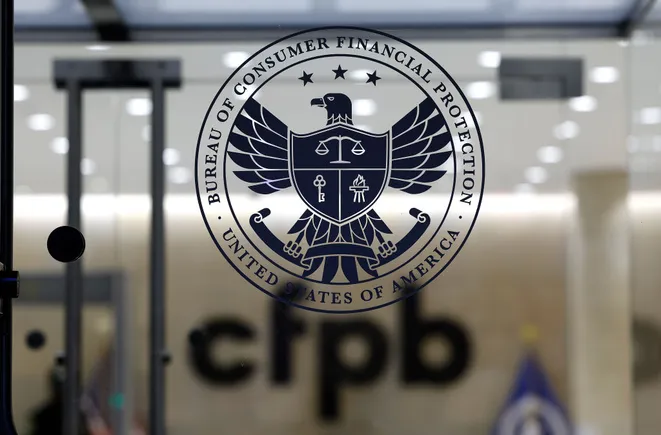The Consumer Financial Protection Bureau will shift enforcement and supervisory matters to states and pivot its focus away from non-depository institutions, according to an internal note issued Wednesday by Chief Legal Officer Mark Paoletta.
“In 2012, 70% of the Bureau’s supervision focused on banks and depository institutions and 30% on nonbanks,” Paoletta wrote. “Now that proportion has been completely flipped … the Bureau must seek to return to the 2012 proportion and focus on the largest banks and depository institutions.”
It’s an about-face from the doings of the CFPB under Rohit Chopra, which among other things finalized a rule last year to oversee big technology companies that offer various financial services.
The memo, sent to bureau staff, detailed 11 priorities for 2025.
Among them, bureau staff will focus on redressing harm by getting money directly to affected consumers, “rather than imposing penalties on companies in order to simply fill the Bureau’s penalty fund,” Paoletta wrote.
The bureau will focus on fraud against consumers with “material and measurable” damages, particularly related to mortgages, data furnishing violations, consumer contracts issues, fraudulent overcharges and fees or loss resulting from lax controls to protect consumer information.
It will also focus on providing redress to military members, their families and veterans.
What the bureau will not focus on, Paoletta wrote, is fair lending law violations based “solely on statistical evidence and/or stray remarks that may be susceptible to adverse inferences.” It will only pursue lending law matters with “proven actual intentional racial discrimination and actual identified victims.”
In such cases, the bureau will seek maximum penalties, Paoletta wrote.
The CFPB participated in a Justice Department redlining suit against Fairway Independent Mortgage Corp. last year that resulted in a $9.9 million settlement, $1.9 million of which went to the CFPB victims relief fund. It participated in a similar lawsuit against Townstone Financial, which was required to pay the CFPB $105,000 to settle redlining allegations.
The CFPB has since moved to vacate the Townstone case.
But David Silberman, senior adviser to the Financial Health Network and a former associate director at the CFPB, told American Banker that he’s “not sure what is left of fair lending supervision or enforcement under this policy.”
Statistical evidence has long been used in fair lending cases, and most don’t have direct evidence of intentional discrimination.

